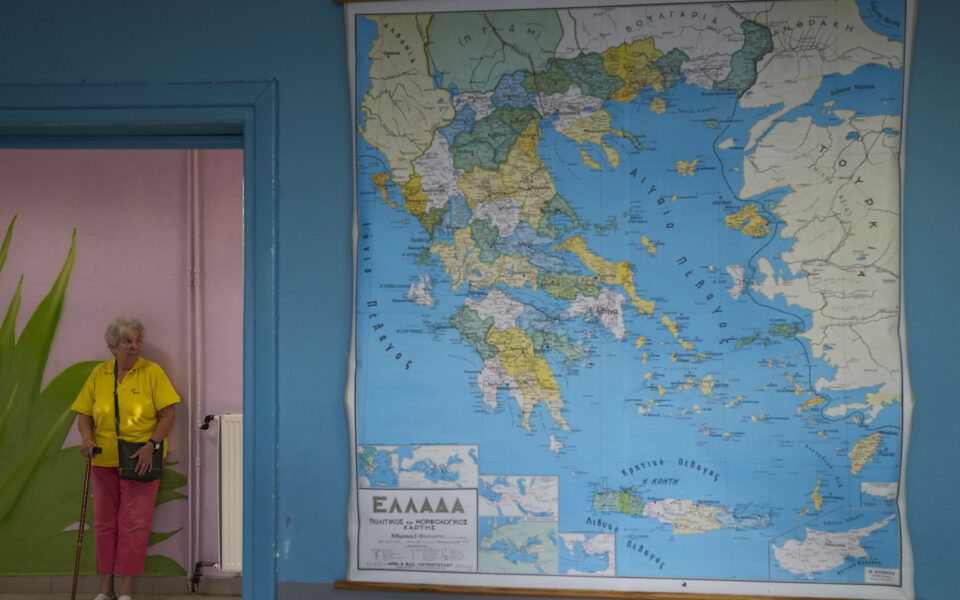SYRIZA, PASOK vie for the socialists’ heart

After the unlikely choice of an ex-Goldman Sachs banker to lead SYRIZA, the party is considering another revamp of its image, officially moving from the radical-left to the center-left.
Senior SYRIZA officials have proposed a transition from the European United Left–Nordic Green Left (GUE-NGL), the left-wing political group of the European Parliament, to the Progressive Alliance of Socialists and Democrats (S&D).
The proposal was put forward by Costas Zachariadis, Thanasis Theocharopoulos and Yannis Ragkousis ahead of the party’s conference next month.
“It is time for SYRIZA to decisively declare that it aims to become the main center-left force, the primary representative of the country’s big progressive coalition,” they said in a statement.
“The battle of the upcoming European and national elections will not be decided on the grounds of the radical left but on the grounds of the center-left.”
Theocharopoulos even proposed an inner-party referendum on the issue ahead of the June European elections.
The proposal provoked the ire of the PASOK party.
“We have a party that uses the term ‘radical left’ in its name, whose members propose to become social democrats and whose president, according to his closest associate, was a candidate for a ministerial seat with New Democracy,” its leader Nikos Androulakis said in a recent interview. “To me, all this shows a canvas that sends a message to society: If New Democracy is to have an opponent, there is no other way than for PASOK to become the main opposition in the European elections.”
The president of the S&D group, Iratxe Garcia Perez, did not rule out the move, saying it is up to SYRIZA to decide where it wants to be positioned after the European elections.
Targeting the moderates
Even though PASOK currently sits with the S&D group in the European Parliament, SYRIZA’s former party leader, Alexis Tsipras, had agreed to its participation as an observer in the S&D meetings.
Senior SYRIZA officials note that, although it is important that the discussion has finally started, the move will not yet take place – at least not before the European elections.
Any such move, they say, would mean SYRIZA would place itself in a group where it already has a domestic opponent, PASOK, while leaving the Left group entirely to the New Left, the recently-formed left-wing party formed by SYRIZA dissidents.
The ongoing discussion is a prelude of what will follow after the European elections, when there is a widespread feeling that a discussion on a cooperation among the left-wing and center-left will start.
A key question is who would be in a position to lead such an alliance.
SYRIZA came to power in 2015 in large part by luring PASOK voters. It managed to shake off its radical left profile after the traumatic years of the financial crisis and the implementation of bailout policies, but also followed a pragmatic foreign policy, promoting closer relations with the US and implementing the Prespes Agreement.
PASOK now wants to regain what it considers its own political space and achieve a reverse 2015. Opinion polls suggest this has already happened.
Indeed, the dubious choice of the former US-based Kasselakis to lead SYRIZA does not seem to be paying off, as the party has lost its second place in the ratings. But even if PASOK has moved into second place, it has so far failed to make any significant gains in popularity.
The gap with ruling New Democracy remains significant. Meanwhile, no party or political figure appears strong enough to be considered a real alternative.





